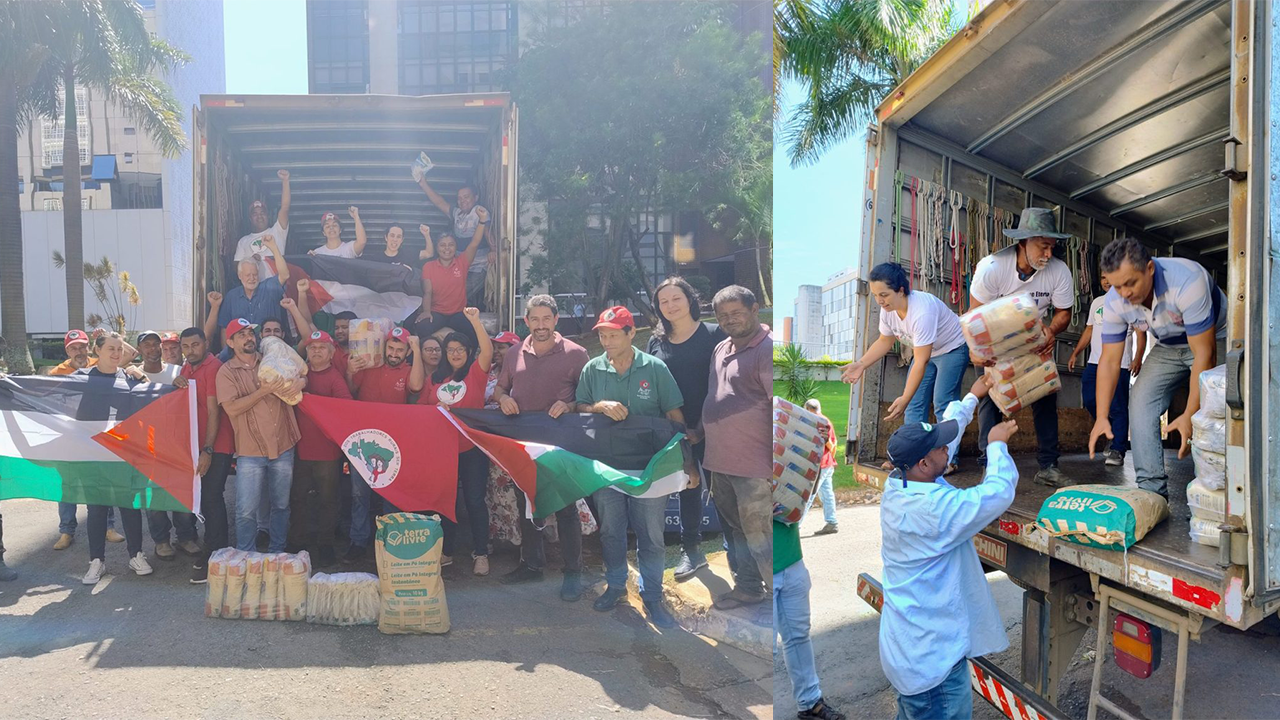Another shipment of food produced by members of the Landless Rural Workers’ Movement (MST) left Brazil on December 6 for families suffering under the humanitarian crisis in the Gaza Strip due to Israel’s almost complete blockade of the enclave. In total, the MST sent 11 tons of food, in its latest contributions to international humanitarian assistance efforts.
“We are making the second donation of food to the Palestinian people, as we believe in international solidarity. The Palestinian people, as well as all the people who fight for sovereignty, need the solidarity action of other peoples of the world,” highlighted Jane Cabral, from the MST national board.
The first shipment was made in October, with rice, corn flour, and milk. “The food we are donating is a symbol of our action in Brazil and a reaffirmation of our solidarity with the Palestinian people,” concluded Cabral.
The MST’s action is part of a broader set of initiatives by people’s movements and organizations in Brazil in solidarity with the Palestinian people who have suffered Israel’s genocidal attacks on Gaza. Solidarity groups have organized rallies, marches, festivals, and more in Brazil in order to raise the demand for a permanent ceasefire.
The humanitarian situation in Gaza after two months of Israeli attacks remains critical and the needs of the Palestinian people are unprecedented, according to UNRWA, the United Nations Relief and Works Agency for Palestine Refugees. Recent reports have stated that the number of trucks entering Gaza a day has dropped to below 100, while UNRWA spokesperson, Adnan Abu Hasna, has maintained that at least 200 trucks per day for two months would be needed to minimally address the needs of the population in the region, wherein many areas are still without access to drinking water, food, and other necessities.





